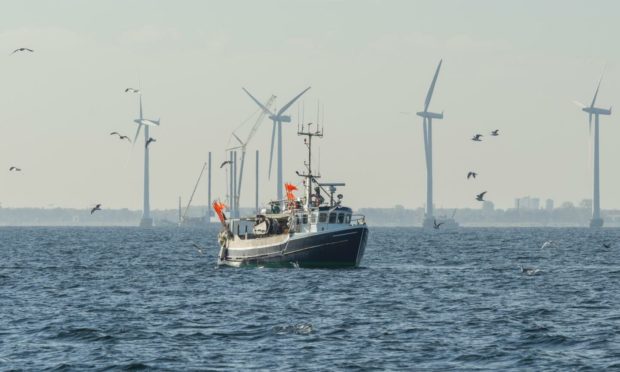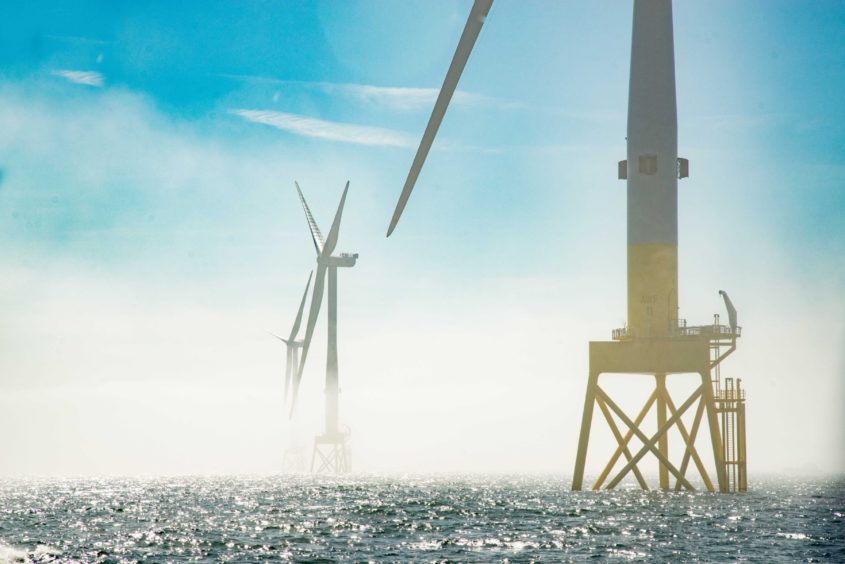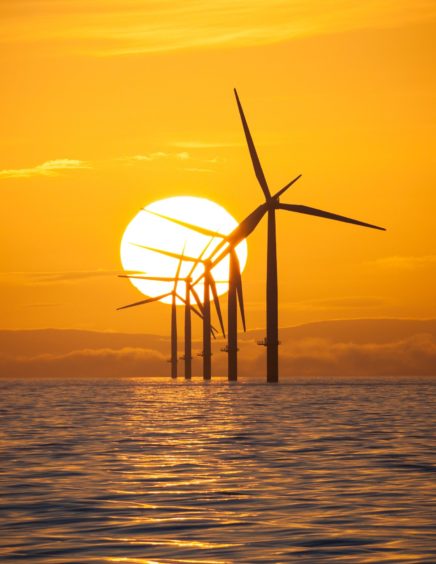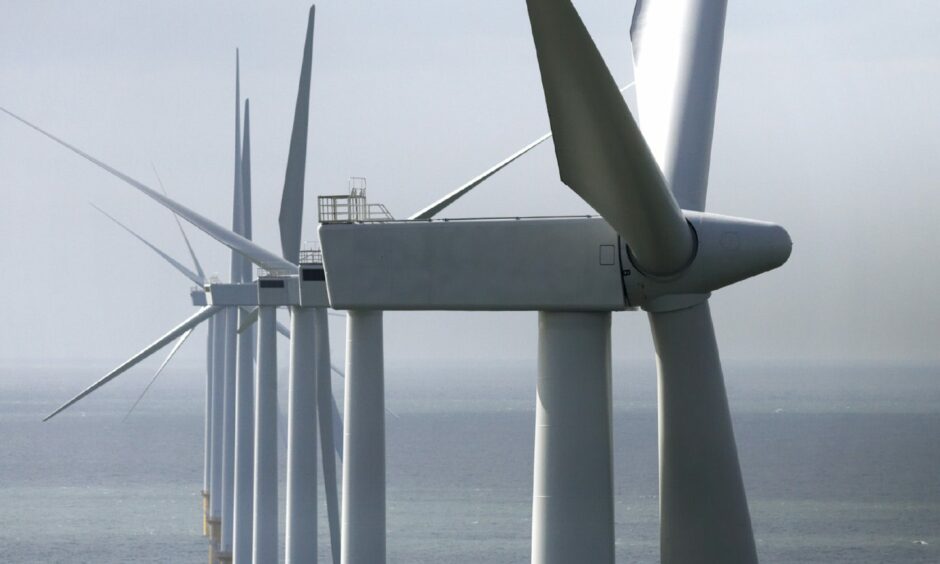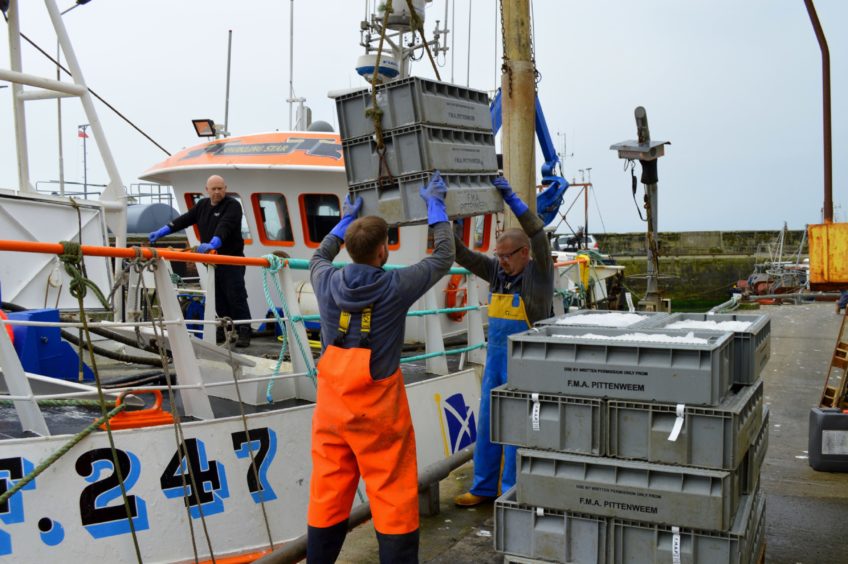A £7 million new study has been launched to find out how offshore wind farms impact the marine environment.
The ECOWind programme and its findings are of particular interest to the Scottish fishing industry, which has raised concerns in the past over the pace of development in offshore renewable energy.
But, earlier today (August 24), a spokesman for Scottish fishing said it was “deeply disappointing” EcoWind’s steering group has no representatives from the industry.
ECOWind is a joint initiative led by the Natural Environment Research Council (Nerc), in partnership with The Crown Estate and Department for Environment, Food and Rural Affairs.
Its launch comes just a few weeks after North Sea energy firm Equinor announced a new trial aimed at better understanding how fishers can safely operate around and within floating offshore wind farms.
Scottish Government agency Marine Scotland is also leading an initiative, ScotMer, focused on better understanding and assessing the environmental and socioeconomic implications of offshore renewable developments.
Offshore wind projects around the UK are expected to deliver 40 gigawatts of energy production by 2030.
Nerc said its four-year programme would fund “leading-edge” research into how turbines affect the marine environment, alongside other growing pressures on UK ecosystems – including climate change and human activities such as fishing.
In particular, researchers will focus on how fish populations and inter-species interactions are responding to offshore wind developments, and how innovative technologies can be used to “improve our understanding” of the relationship.
‘Long-term successful relationships’
Nerc – a public body funded by the Department for Business, Energy and Industrial Strategy – added the research findings would inform key decision-makers in the management of UK waters to help achieve Britain’s commitment to reach net-zero greenhouse gas emissions by 2050.
ECOWind is also expected to “engage the academic community”, helping to develop “long-term successful relationships” between researchers, government and industry.
Nerc research and skills director Susan Waldron said: “The UK has set a legal requirement to reach net-zero greenhouse gas emissions by 2050, which will reduce our contribution to climate change.
“Expanding sustainable energy generation is at the heart of the government’s strategy but it’s important we understand the response from wildlife and marine ecosystems to help manage this sustainably.
“This collaborative programme will analyse the ecological consequence of large-scale expansion of offshore windfarms to inform future policy decisions throughout UK waters.”
‘Brightest brains’
Mandy King, programme manager for The Crown Estate’s Offshore Wind Evidence and Change Programme, said the new research would “bring together industry, government and some of the brightest brains in the academic community”.
They will together use the power of science to “help us better understand long-term environmental change to our precious marine ecosystems and the role of offshore wind in it”, Ms King added.
Scottish Fishermen’s Federation (SFF) fisheries policy officer Malcolm Morrison said: “While further research will undoubtedly be helpful in generating evidence and data that could help the fishing and offshore wind renewables sectors to co-exist, it is deeply disappointing that this large steering group includes representatives from the energy, offshore renewables and NGO (Non-governmental organisation) sectors but none from the fishing industry.
“Due to spatial displacement in already crowded seas, ours is the sector most likely to feel the impact of the growth in offshore wind.”
Mr Morrison added: “The SFF is engaged with Marine Scotland in the ScotMER project, which covers seven different disciplines ranging from ornithology to fishing and socioeconomics, and we believe that we should be similarly involved in this latest project.”
Scottish fishing bites back after new study findings show key stocks at record levels
Fish processors demand urgent action from PM on labour shortages
